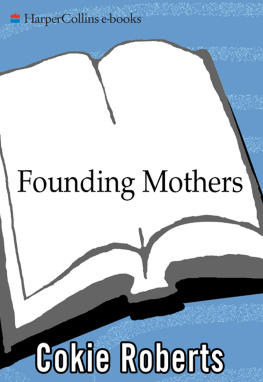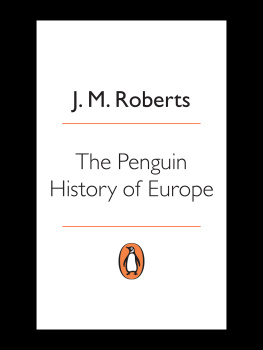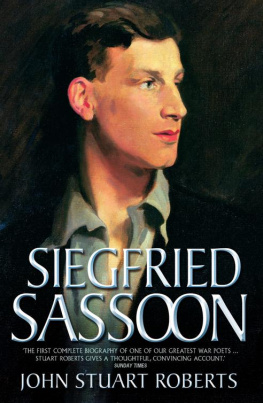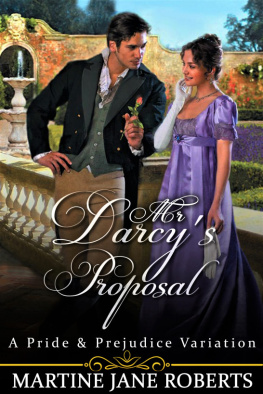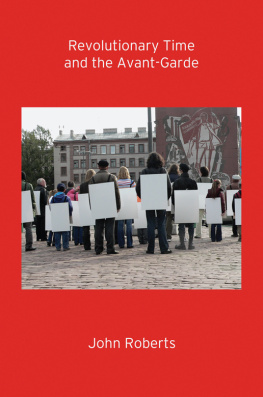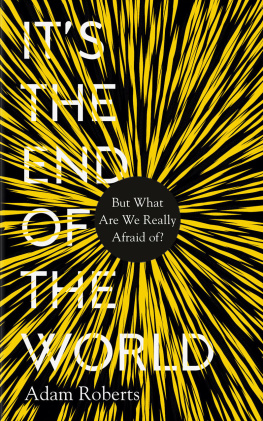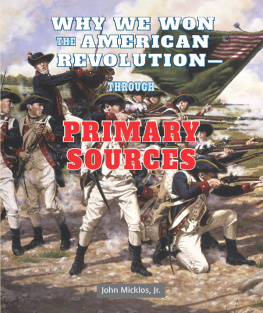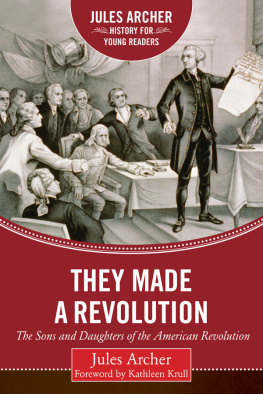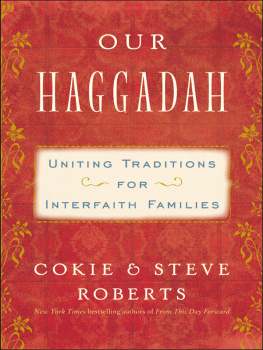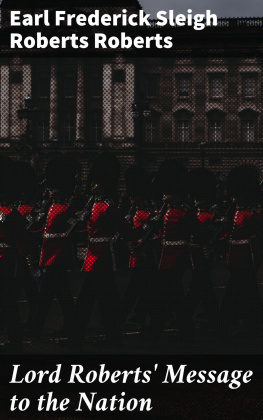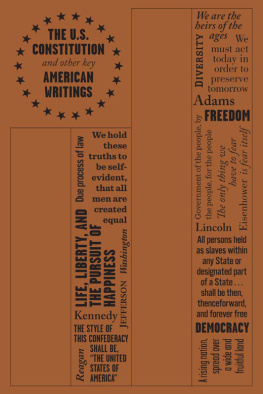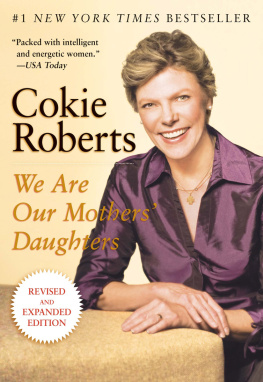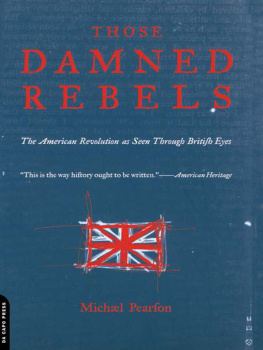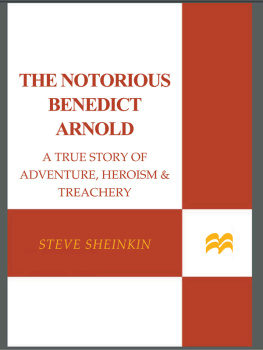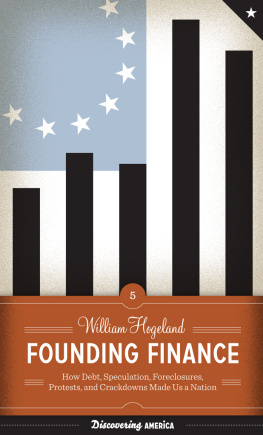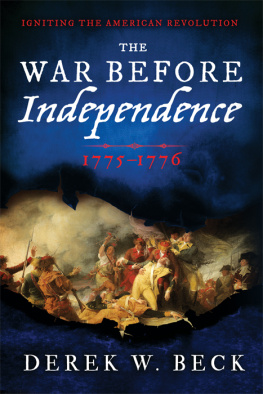The women in my family, particularly my mother, who told the stories we call history.
And, especially, to the religious of the Society of the Sacred Heart, the RSCJs, who take girls seriouslya radical notion in the 1950s.
F irst a word about what this book is and what it is not. This is a book of storiesstories of the women who influenced the Founding Fathers. It is not a disquisition on eighteenth-century life. These are by definition elite women. There are many other women of the time whose lives were much harder than the ones described here, but the Founding Fathers werent listening to them. It is also not an examination of the writings of the Founding Mothers, which can be difficult to read. To make it easier, I have modernized and corrected the spelling and punctuation in their letters.
When I decided to try to find the women who had the ears of the Founding Fathers, I knew I couldnt do it without the help of my friend Ann Charnley. (Shes told me to stop saying my old friend, but thats the case.) Ann had provided yeoman work on my previous books, but this one was going to be a whole lot harder. So before I agreed to do it, I called to see if she was on board. Her response Be still, my heart tells you all you need to know about her commitment to the enterprise. Even so, neither one of us knew just how tough this research would turn out to be. Many of the women in these pages had the lack of grace to burn their letters, Martha Washington among them. Thomas Jefferson threw away all his correspondence with his wife. Abigail Adams kept telling John to destroy her delightful missives; fortunately, he had the good sense to ignore her. Even the letters that were saved are difficult to track down and to decipher. In many cases, the writings of the men have been transcribedthose of the women still available only in almost-impossible-to-read longhand on fading microfilm. Its required as much detective work as straightforward research to ferret out much of this information. Fortunately, some of these womens descendants understood their ancestors contributions to early America and wrote biographies based on their letters. And my heroine, Elizabeth Ellet, published her two-volume work The Women of the American Revolution in 1848 when there were still people alive who had heard the stories directly from the participants. (At least one woman of the Revolution, Betsey Hamilton, was living at the time of publication.) But even then she found it rough going: Inasmuch as political history says but littleand that vaguely and incidentallyof the women who bore their part in the Revolution, the materials for a work treating of them and their actions and sufferings, must be derived in great part from private sources. The only difference now is that some of those private letters have ended up in libraries and historical societies where, with a good deal of effort, they can be found. Ann Charnley, though often frustrated, managed to do that magnificently, finding new information right up until publication. Her triumphant hoot when she finally discovered some elusive document was worth the wait.
Along the way, Ann had helpers at many institutions:
At the Library of Congress, where my friend Jim Billington opened the door: Barbara Bair and Janice Ruth in the Manuscript Division; Sheridan Harvey in the Womens Studies Division.
At the Huntington Library, where the Collection of American Historical Manuscripts and Rare Books is truly remarkable: Romaine Ahlstrom, Susi Krasnoo, John Rhodemal, and Barbara Robertson. Paul Zall, the resident reader, was not only personally helpful, but his books provide wonderful sketches of several Founding Mothers, plus their letters.
At the University of Virginia: Holly C. Shulman, editor of the Papers of Dolley Payne Madison.
At the South Carolina Historical Society: Carey Lucas Nikonchuk, research consultant.
At the University of South Carolina, the South Carolinian Library: Sam Fore, manuscript specialist.
At the Mount Vernon Ladies Association: research specialist Mary V. Thompson.
At the Butler Library of Columbia University: Mary-Jo Kline, the John Jay Papers.
At the Massachusetts Historical Society: Celeste Walker and Ann Decker Cecere, associate editors of the Adams Papers.
At the Historical Society of Pennsylvania: Sharon Ann Holt.
At the John Jay Homestead Historical Site: Allan Weinreb.
The New York, New Jersey, and Virginia Historical Societies were also helpful, as was the New York Public Library. Elise Pinckney, editor of the South Carolina Historical Magazine, was a delight. Thanks to her and her cousin Pie Friendly who sent us to her.
Though many Founding Mothers have not been the subjects of full-scale biographies, some books about them for young readers have been published over the years. I assigned my own young reader, my niece, Abigail Roberts, to report on several of those books and she did a first-rate job. For a childs book on Mumbet, I asked my great-niece, Charlotte Davidsen, for a book report and she also came through in fine fashion.
Once I started writing, I realized that I would have to deal with footnotessomething I hadnt done since my long-ago college days. Annie Whitworth, who is much more than my assistant, took on that onerous task, along with many others. (As deadlines approached at Christmas time, I was correcting the footnotes surrounded by my four precious grandchildren, all under three at the time. So if there are mistakes, blame me, not Annie.) And my daughter, Rebecca Roberts, carved time out of her very busy life to serve as an enthusiastic and exacting editor. At William Morrow, my friend and editor, Claire Wachtel, has guided me through this book with great patience. Her assistant, Jennifer Pooley, is ever helpful. Jane Friedman, one of the great ladies in publishing, is a terrific cheerleader, as is Michael Morrison. Thanks too to Libby Jordan, Lisa Gallagher, and Kim Lewis. Diana DeBartlo has made sure the world knows this book exists. Barbara Levine found the portraits of the ladies and created the cover. Joyce Wong did a great job copyediting text and footnotes. In this enterprise, as in all my other ones, Bob Barnett served as lawyer extraordinaire.
A project as big as this one naturally takes time away from other work. I am thankful to my bureau chief at ABC News, Robin Sproul, and the executive producer of NPRs Morning Edition, Ellen McDonnell, for their understanding, encouragement, and friendship. Kim Roellig kept me from backsliding too much in my personal obligations.
After I had agreed to write this book I was diagnosed with breast cancer. The doctors and nurses at the National Institutes of Health, especially doctors Joanne Zujewski and Rosemary Altemas, plus surgeon Colette Magnant, have taken wonderful care of me both physically and spiritually. So have my many friends and relatives who saw me through a difficult year. Special thanks to Linda Wertheimer, Nina Totenberg, Kitty Roberts, Barbara Boggs, Courtney Kane, Eden Lipson, Millie Meyers, Gloria Borger, Linda Winslow, and Anne Davis. Finally, theres no way I can thank my husband enough. Not only was this book Steves idea, he has nurtured it and me every step of the way. His devotion knows no bounds. Along with taking over responsibility for our weekly newspaper column, he also took on many household chores. Most important, every day he makes me happy, and many days he brings me flowers.

